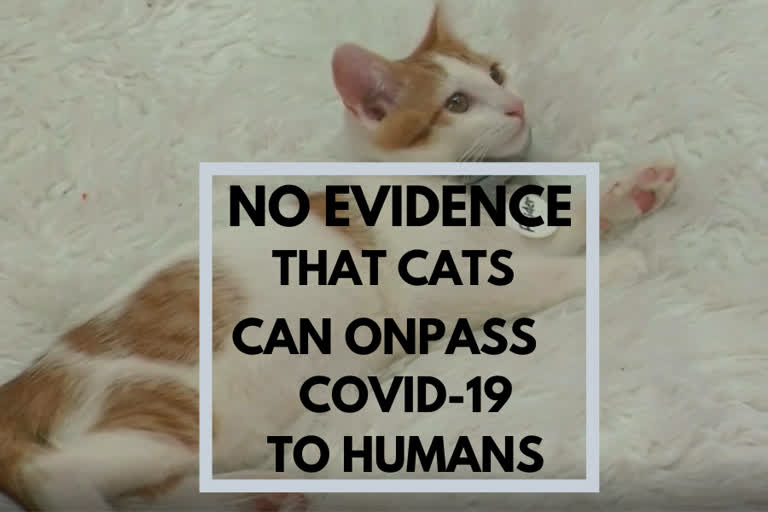An experimental Chinese study shows cats can catch COVID-19 and may pass on the virus to other cats in close proximity.However veterinarians are urging that the Chinese study be treated with caution as it was not peer reviewed and involved a very small sample.
A leading UK veterinary professor says there is no evidence that cats can onpass COVID-19 to humans.
What a difference a year makes.Last summer this shelter in LA opened for unwanted cats.
People are urged to come and play with the animals, hopefully to form a bond them, adopt one and give it a loving home.With so many people self-isolating against the virus, household pets have become a lifeline for many.But the pandemic of COVID-19 has repeatedly raised some concern among pet owners.
Some fear they could pass the virus to their animals, others worry about catching the virus from their cats or dogs.
Now a study by Harbin Veterinary Research Institute in China shows cats can be infected by COVID-19 and they can transmit it to other cats.The scientists took five cats, gave them high doses of the virus through their noses, and then euthanised two of these cats after six days.Examination of the dead cats showed their respiratory tract had been infected.The remaining infected cats were placed in cages next to a second group uninfected cats.
Also Read:Strong disinfectants may be harsh on your skin
After several days one of the second group of cats was found to be infected with the virus, which the researchers suggest must come from droplets breathed out by the infected cats.While the experiment may show that transmission from human to cat, and cat to cat is possible, Professor Ken Smith, is a specialist in animal pathology at Britain's Royal Veterinary College says we ought to exercise caution about the results.
"That was a high dose of virus, so that's some likely unnatural situation, but the other fact is that the transmission to a single cat was based on those cats being in very close proximity, so in adjoining cages for a prolonged period. So for several days. So already one is beginning to depart from the situation in nature," says Smith.
The study at Harbin, although published, has not yet been peer reviewed which means other scientists have not been able to scrutinise whether the results of the tests are repeatable, and whether they are flawed.
Smith says: "I would be very, very cautious indeed about over interpreting the transmissibility of that virus from cat to cat on the basis of an experimental study that but there's no evidence at all in natural infections of cats, which are very rare indeed, that those infections can be transmitted cat to cat. So I think we need to be very cautious about that Chinese study."
